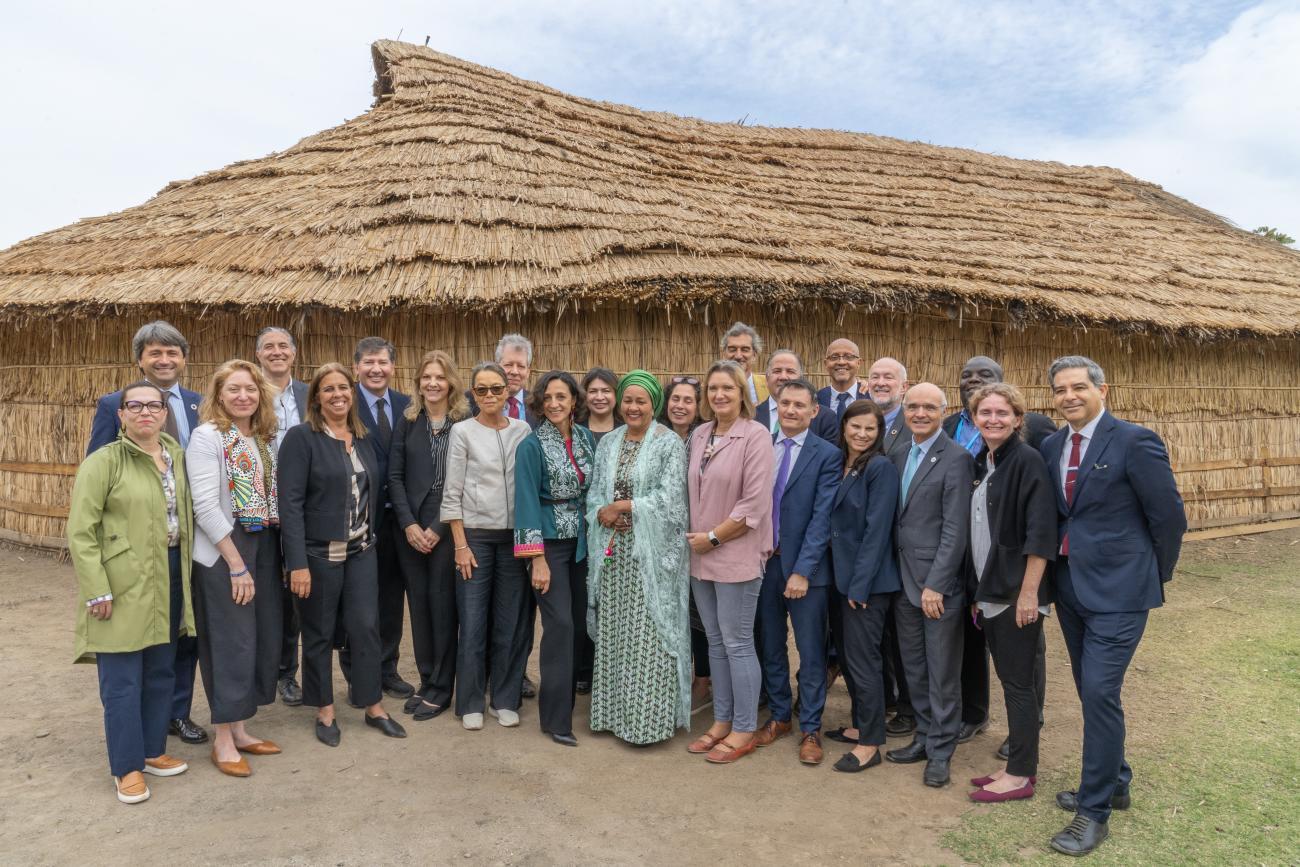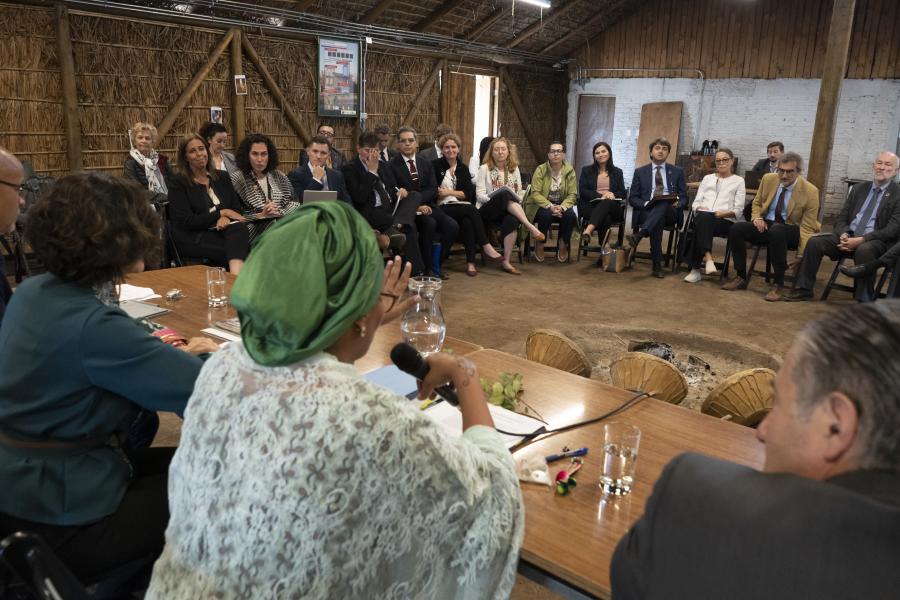UN Deputy Chief calls on Resident Coordinators in Latin America and the Caribbean to accelerate the SDG Agenda in view of the September Summit

She emphasised the need to work together hurriedly to address the current global crises and the region's main needs.
Santiago, April 26, 2023 – In the framework of the Sixth Meeting of the Forum of Latin American and Caribbean Countries on Sustainable Development and her visit to Chile, Deputy Secretary-General Amina Mohammed, met with UN Resident Coordinators in Latin America and the Caribbean (LAC); Oscar Fernandez-Taranco, Assistant Secretary-General for Development Coordination Development Coordination Office (DCO); and Roberto Valent, Regional Director for Latin America and the Caribbean of DCO. During the meeting, she emphasised the need to work together hurriedly to address the current global crises and the region's main needs. She emphasised that we live in a time in which development has become an emergency.
The reality in Latin America and the Caribbean after the COVID-19 pandemic is a region facing major economic, social, and migratory crises, in addition to a growing impact due to climate change. This has resulted in increased inequality, one of the main historical problems of this area, in addition to food insecurity, migration processes and the relationship with its indigenous peoples.
In this context, the senior official emphasised that "the 2030 Agenda and the Sustainable Development Goals (SDG) serve as a guide for countries and governments to focus their attention on what really matters to people and the planet in order to urgently focus on ambitious policies that focus on sustainable development”.
Ms. Mohammed also stressed that “the United Nations is essential to bring the world back together, to ensure that no one is silenced, and all voices are heard. For this reason, she called on the UN representatives in Latin American countries to make the most pressing problems of Latin America and the Caribbean heard loud and clear at the Sustainable Development Summit to be held next September". She called for ensuring that the voices of those most left behind are considered in preparing the Summit, particularly those of indigenous peoples, afro-descendants, women, and youth.
During the meeting, Oscar Fernandez-Taranco, Assistant Secretary-General for Development Coordination, highlighted the relevance of bringing together the Resident Coordinators in such an emblematic place as the urban indigenous community of Mahuidache, since "it helps us to rescue and rethink the sustainable development objectives by putting people at the centre of our attention".

The Resident Coordinators at the meeting expressed their concern, highlighting, among other issues, the risk of not achieving the SDGs in this part of the world, at a time when public debt levels limit the capacity of governments to respond. On this topic, they agreed on the need to align the UN's offer of support with the national development plans of the countries it serves, to enhance the 2030 Agenda.
The UN authorities in LAC countries shared the importance of the Coordination Offices, as they play a critical role in facilitating inclusive spaces for consultation among all stakeholders to enable open dialogues on the future with the various actors in society (public, private, civil society, and academia).
For the UN Resident Coordinator in Chile, María José Torres, "having carried out months of participatory work with the multiplicity of representatives from different sectors of society allowed us to validate the process of elaboration and the strategic priorities of the Cooperation Framework for Sustainable Development in Chile (2023-2026), which we recently signed with the Government".
Pablo Ruiz, Resident Coordinator in Uruguay, endorsed Amina Mohammed's inspiring speech, adding that "in a turbulent world, it is urgent to reinforce the commitment to the SDGs in 2030. In Uruguay, the eradication of child poverty is one of the challenges," he explained.
Ulrika Richardson, Resident Coordinator in Haiti, a country experiencing a profound crisis of violence, stressed the importance of continuing to work in that nation for the region’s stability. The key is to address humanitarian issues without forgetting the structural problems. For his part, the Resident Coordinator in the Dominican Republic, Mauricio Ramirez, pointed out the need to work together between the country teams in Haiti and the Dominican Republic in the framework of the Sustainable Development Goals.
Despite significant delays in the SDG agenda at the global level, during the meeting, it was pointed out that Latin America and the Caribbean is a region of opportunity, and its voice is critical in global forums. Furthering the multilateral and multi-agency focus, the Resident Coordinator in Ecuador, Lena Savelli, outlined "the usefulness of the latest thematic world summits to promote actions, regulatory frameworks, policies and budget monitoring tools".
Closing, Deputy Secretary-General reiterated that the SDG Summit, which is to take place in September during the UN General Assembly, will provide an opportunity for governments to reaffirm their commitments to the SDGs in a bold and transformative way through concrete actions and informed plans: "2023 is a crucial moment to seize the opportunity to take the right direction and do things differently".

















